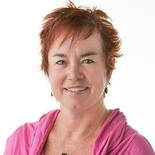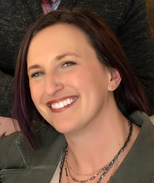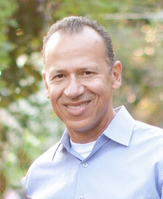|
By Peter Heege The Intercultural Development Inventory (IDI), developed by Mitchell R. Hammer, professor of international peace and conflict resolution at American University, assesses intercultural competence as the capability to shift cultural perspective and appropriately adapt behavior to cultural differences and commonalities. To help us grow our ability to be an anti-racist, multicultural spiritual community, a number of key ministry groups at Unity Church are being invited to take the IDI. The sessions are also available to individual congregants. In the February issue of commUNITY, Mary Pickard discussed how Unity hopes to use the IDI. This article expands on that with an introduction to our three IDI qualified administrators and the role they will play. Our Qualified IDI Administrators  Betsy Hearn is a lifelong learner who actively pursues opportunities to grow as a human. She is a learning and development professional with experience across the non-profit, higher education and corporate worlds. She has worked in leadership development, organizational development and diversity and inclusion for the past thirty years. She has been an IDI qualified administrator since 2017 and has facilitated workshops, debriefs and coaching for individuals to understand the benefit from the Intercultural Development Inventory (IDI).  My name is Kelley Nelson and I am a member of Unity Church and qualified IDI administrator. I am excited to offer you the opportunity to take the IDI assessment and receive feedback from me over the next few months as we work together to become even more effective in our cross-cultural work. Here is a little bit about myself: Kelley Winchester Nelson has spent her career advocating for educational equity and developing cultural competency in a myriad of settings and diverse circumstances. Upon graduating Cum Laude from Colby College with a BA in Sociology and a minor in Women's Studies, Kelley spent seven years with The Steppingstone Foundation in Boston recruiting, preparing and supporting youth from under-resourced communities as they applied to and matriculated from top independent schools in the area. Kelley served as a teacher, advocate, and cultural broker working with families to identify their educational goals and finding the right match in academically rigorous, though predominantly white and upper class, private schools, while simultaneously challenging those schools to change their cultures and environment to be truly diverse and welcoming spaces. When her family relocated to the Twin Cities, Kelley joined The Blake School's lead administrative team as the Co-Director of the Center for Diversity creating change from within at a prestigious independent school. It was there that in 2006, Kelley became a qualified Intercultural Development Inventory administrator and became a student of the developmental model of intercultural sensitivity. Kelley has since applied her knowledge and expertise in the development of cultural competency coupled with a deep understanding of white privilege, power, and oppression, in work with teachers and students in St. Paul Public Schools, the East Metro Integration District, and currently in her roles with several youth development programs in the Twin Cities.  Tim Wendt is an experienced HR professional with experience working with executive leaders in the corporate environment. He helped to lead executives at a Fortune 500 company through a cultural competence journey that led to the organization developing a cultural competence and DEI roadmap. With more than 30 years of human resources experience he brings both breadth and depth to corporate and DEI initiatives. He is an IDI qualified administrator and has facilitated hundreds of workshops for thousands of employees. Interview with Kelley Nelson
PH: What’s your take on the IDI in general and its potential benefits for Unity Church? KN: I’ve been working with the IDI for 15 years. It’s an extremely useful tool for people to understand how they make sense of cultural difference based upon their life experiences. It encourages a wider definition of culture and is a roadmap for developing that wider view. It helps people understand how the experiences they have had during their lives influence how they interact with other cultures. Once people understand themselves better it enables more effective interaction with other cultures. Our Ends statements call on us to develop a more multicultural, multiracial congregation. Unity’s population has historically (and currently) been very homogeneous, and realistically our outreach efforts have been based on our own perspectives and have not been terrifically successful in attracting people with a wider variety of backgrounds and perspectives. When groups and individuals become more effective in interactions, the congregation can be more effective in attracting the diverse population we strive for. PH: What results have you seen with other organizations you’ve worked with? KN: I’ve primarily worked in the education area. There were many “aha” moments in those trainings, unearthing embedded ideas and stories that negatively affect cultural competence. Individual sessions were very effective, and when there was a committed and cohesive group that was guided by the learnings from these sessions, the organization attracted and retained a diverse culture. PH: Tell us about a group profile feedback session. KN: A group session, usually about 1-1/2 hours, typically includes a quick review of the concepts of culture (iceberg model) and a review of the stages on the IDI continuum from denial through minimization to acceptance/adaptation. A group profile is developed using the distribution on the development continuum of individual profiles of group members. After discussing the group result, and the variances in individual results, the group is coached on how to use these results to enable more effective group action. PH: What are the options for an individual feedback session and why would it be helpful? KN: Those participating in group feedback sessions will be offered the opportunity for individual feedback sessions on a pay-as-you-are-able basis, with scholarships available from Unity's Helener Currier Endowment. The individual sessions are approximately one hour and will include discussion of your individual experience, how it is tied to your IDI profile, and development of a plan for using this information to increase your effectiveness in multicultural work. These feedback sessions have been shown to be the single most effective way to facilitate growth along the IDI continuum and to promote meaningful participation in group work toward our Ends. These sessions are also available to individual congregants on the same basis, and those interested are strongly encouraged to schedule one for themselves. Contact Drew Danielson at [email protected] for more information or to sign-up.
1 Comment
Leave a Reply. |
Topics
All
Beloved Community ResourcesUnity Justice Database
Team Dynamics House of Intersectionality Anti-Racism Resources in the Unity Libraries Collection Creative Writers of Color in Unity Libraries The History of Race Relations and Unity Church, 1850-2005 Archives
July 2024
Beloved Community Staff TeamThe Beloved Community Staff Team (BCST) strengthens and coordinates Unity’s antiracism and multicultural work, and provides opportunities for congregants and the church to grow into greater intercultural competency. We help the congregation ground itself in the understanding of antiracism and multiculturalism as a core part of faith formation. We support Unity’s efforts to expand our collective capacity to imagine and build the Beloved Community. Here, we share the stories of this journey — the struggles, the questions, and the collaborations — both at Unity and in the wider world.
The current members of the Beloved Community Staff Team include Rev. Kathleen Rolenz, Rev. KP Hong, Rev. Lara Cowtan, Drew Danielson, Laura Park, Lia Rivamonte and Angela Wilcox. |